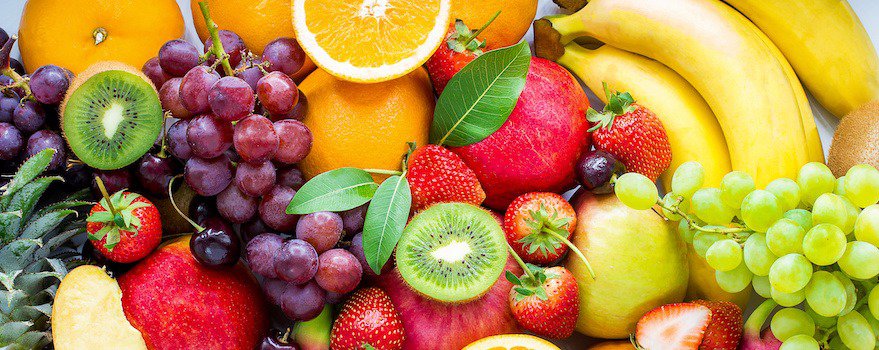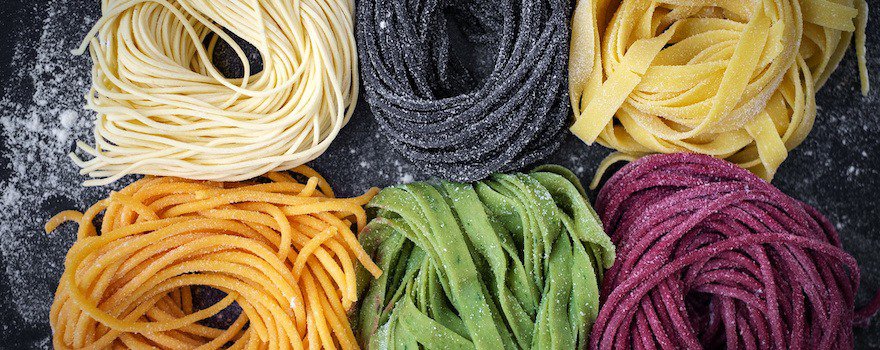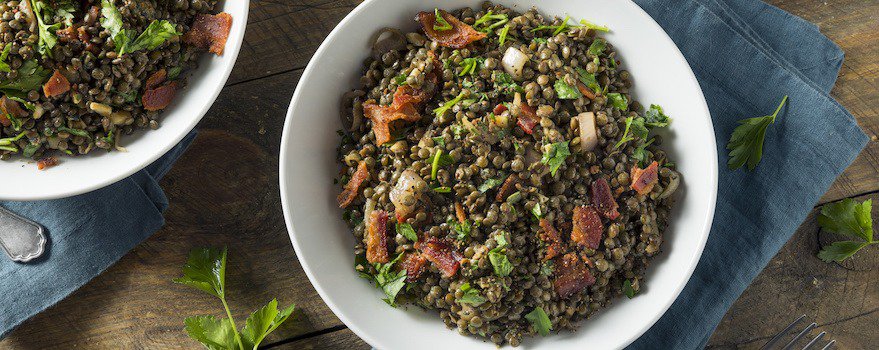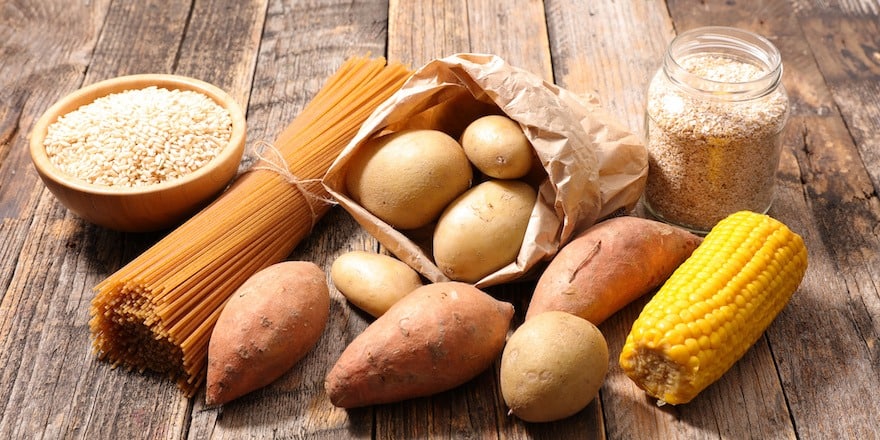What are carbohydrates?
Carbohydrates are energy-yielding organic compounds. They are also referred to as carbohydrates or sugar. They are divided into two categories:
- les glucides simples qui comprennent le glucose, le galactose, le fructose, le maltose et le lactose. Le saccharose ou sucre blanc est constitué de l’association du fructose et du glucose, tandis que le lactose (que l’on retrouve dans le lait) combine le galactose et le glucose.
- les glucides complexes qui comptent l’amidon, le glycogène et les fibres.
They belong to the group of seven macronutrients that provide the nutritional elements necessary for life such as fats, proteins, minerals, vitamins, trace elements and water.
Previously reserved for nobles and the bourgeoisie, refined sugar saw its consumption increase considerably as early as the 19th century. In France, annual sugar consumption is today estimated at 35 kg per person!
Carbohydrates are stored in the liver and muscles in the form of glycogen. During intense physical activity, the body taps into glycogen reserves to synthesize glucose to provide energy to the muscles.
Functions of carbohydrates
Carbohydrates play several roles in the body:
- Assurent un apport énergétique (4 kCal/g). Les muscles et le cerveau sont deux organes qui puisent quotidiennement dans les stocks de glucides. Le glucose est le seul carburant du cerveau.
- Ont un rôle rassasiant. Les glucides agissent sur la satiété et régulent l’appétit.
- Entrent dans la composition de certaines protéines (dont les glycoprotéines), de l’ADN et de l’ARN
- Assurent les réserves de glycogène afin d’être libérés sous forme de glucose lors des besoins d’énergie
- Augmentent la glycémie (taux de sucre dans le sang), en fonction des besoins énergétiques. La glycémie doit être maintenue à un taux régulier pour répondre aux besoins constants du corps. Lors d’un effort physique ou cérébral, elle augmente.
- Ont un rôle positif sur le sommeil en contribuant à l’augmentation de la synthèse de tryptophane. Cet acide aminé est un précurseur de la sérotonine (hormone du bien-être) et de la mélatonine (hormone du sommeil).
A word about the glycemic index:
The glycemic index, or GI, determines the hyperglycemic effect of a food, that is, its impact on the rise in blood sugar compared to glucose. When the index is low (below 55), the food causes a small increase in blood sugar levels. Or at least, the sugar is absorbed more slowly by the body.
When the glycemic index is high (above 70), the food causes blood sugar to rise rapidly. Taking this index into account helps you tailor your diet to your activity and regulate carbohydrate intake. It is therefore useful to determine or know the glycemic index of each food to adjust your intake.

Signs of deficiency
For the body to function properly, sufficient carbohydrate intake must be ensured. In Western countries, refined sugar is widely used in food production and many foods contain it in large quantities.
Therefore, carbohydrate deficiencies are rather rare. They are generally caused by pancreatic or liver disorders, by following a restrictive diet, or by taking hypoglycemic medications.
The symptoms of insufficient carbohydrate intake are:
- des hypoglycémies qui se manifestent par divers symptômes (malaises, sueurs, pertes de connaissance, confusion…)
- de la fatigue
- des troubles neurologiques
- de l’hypercholestérolémie
- l’apparition de calculs
- la production de corps cétoniques à partir des lipides. En cas de jeûne, ces éléments prennent le relais du glucose pour fournir de l’énergie au cerveau. Il faut savoir qu’un taux trop élevé de corps cétoniques est toxique pour le corps. Il peut provoquer une acidocétose conduisant au coma.
Recommended intake
It is considered that carbohydrates should make up about 50% to 55% of total caloric intake. The body’s needs vary depending on the individual according to different criteria (physical activity, age, sex).
In this regard, there are few figures on recommended daily carbohydrate intakes. An adult consumes between 140 and 180 g of carbohydrates on average per day (25 to 30 g of fiber). Intakes should be higher for athletes or for pregnant and breastfeeding women.
Top 5 foods containing carbohydrates
We distinguish natural carbohydrates from white sugars (so-called refined) and added sugars in the majority of processed foods.
Indeed, ice cream, cakes, sodas, fruit juices, breakfast cereals, candies, processed ready-made meals, and ready-to-eat sauces… are high in added sugars and contribute to the overall prevalence of overweight in Western countries.
Here is a list of foods high in natural carbohydrates .
1. Pasta

Pasta is an excellent source of carbohydrates. Elite athletes, in fact, favor it, consuming it before intense physical activity. Its carbohydrate content is about 30 g per 100 g.
To build balanced menus, it is recommended to favor whole-grain pasta whose glycemic index is lower and to avoid fatty sauces. They pair very well with meats and fish, and can also be enjoyed in a salad.
2. Potatoes

Potatoes are rich in carbohydrates (about 15 g/100 g). Often considered too high in calories, they nevertheless form a healthy dietary staple if cooked with little fat.
However, adding olive oil is preferred over butter or crème fraîche! As for their preparation, the choices are varied: mashed, steamed, baked…
3. Dried legumes

Rich in protein and carbohydrates, dried legumes (lentils, chickpeas, white beans, red beans) help ensure a complete nutritional intake. However, be careful to consume reasonable portions to avoid overly heavy meals.
Dried legumes generally require a long cooking time. Cooked in water, they can be eaten in salads or served as an accompaniment with lean meat, fish…
4. Honey

Honey contains fructose, a natural carbohydrate that is also present in fruit. Delicious, it can be eaten as is or used to make homemade pastries.
The advantage of fructose is that its sweetening power is greater than that of sucrose (refined sugar). It does not cause blood sugar spikes and does not promote insulin resistance. It is better tolerated by people with diabetes but should still be consumed in moderation.
Honey can replace refined sugar in tea or coffee, and its nutritional value is more beneficial. It can also be spread on toast in the morning or for an afternoon snack. Consumption should still be limited to a few teaspoons per day, and attention should be paid to its origin!
5. Bananas

Bananas are of great nutritional interest due to their high fiber content. As for their carbohydrate content, it is about 25 g/100 g. They improve digestion and provide natural sugars like most fruits. They also contain many nutrients including potassium, magnesium, vitamin B6 and B9.
The banana’s nutritional benefits are preserved when it is consumed as is. It is ideal for breakfast, dessert, or as a snack. It can also be added to a fruit salad to amplify its characteristic flavor. Good news, it can also replace sugar in cake batters!
Symptoms of excess carbohydrate intake
Today, the addition of sugar to prepared dishes, beverages, and many processed foods is widespread. We thus consume far too much sugar: about 35 kg per person per year.
This overconsumption has caused new pathologies to emerge that have become public health problems.
Signs of carbohydrate overconsumption:
- Surpoids, obésité
- Augmentation du taux de triglycérides dans le sang
- Sécrétion élevée d’insuline ou hyperinsulinisme, diabète de type 2
- Apparition de caries dentaires
Being mindful of your overall daily carbohydrate intake helps prevent these disorders.



